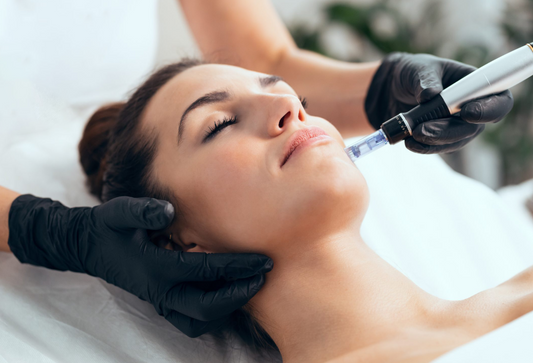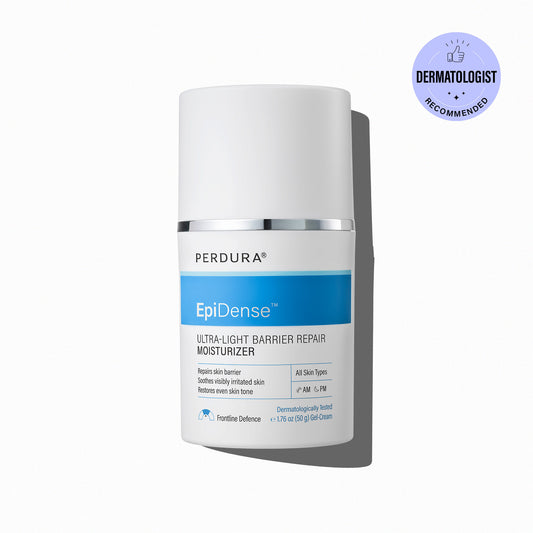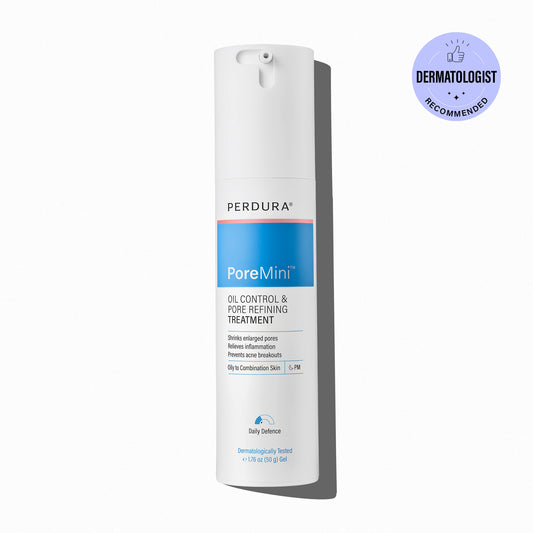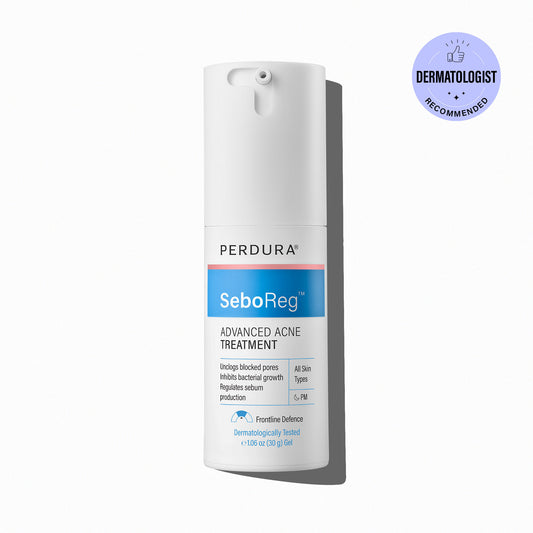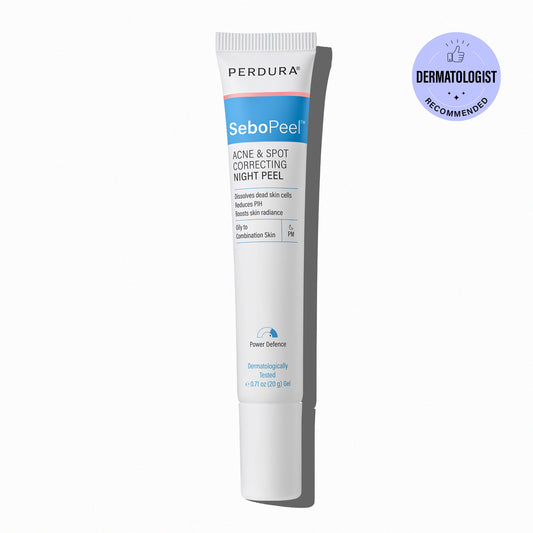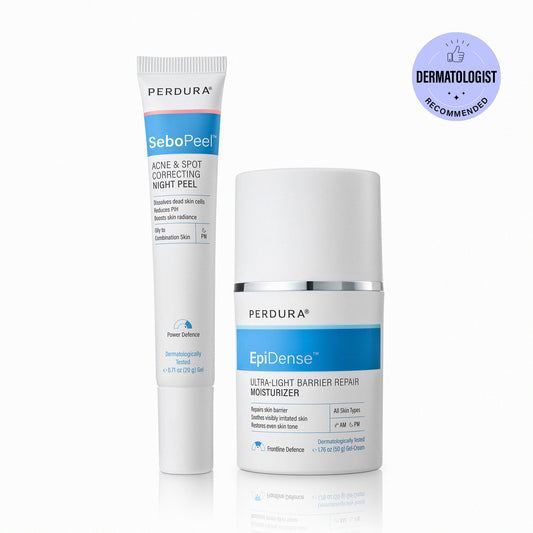Introduction: The sun is out, but is your skin protected?
We all know - and love- the feeling of the sun warming your face, a gentle breeze, and a cold drink in your hand! That’s the perfect summer vibe.
But here's a harsh reality: according to a recent study, 65% of Indians don't regularly use sunscreen! This might seem like a harmless oversight, but the sun's rays wreak havoc on your skin, both internally and externally.
Think wrinkles, premature aging, and dark spots – all signs of sun damage. But for those of us struggling with acne-prone skin, the sun presents an even bigger challenge. Sun exposure can worsen existing breakouts and trigger hyperpigmentation, leaving stubborn dark spots in their wake.
The good news? With the right sunscreen, you can enjoy the outdoors while protecting your precious complexion. This guide will help you choose the right sunscreens for acne-prone skin, ensuring you get the sun protection you need without the added worry of breakouts.
Why Sun Protection is Crucial for Acne-Prone Skin
While the sun might feel good on your skin initially, the truth is, it's a double-edged sword for acne.
Acne is a common skin condition characterized by clogged pores, inflammation, and pimples. It occurs when excess oil (sebum) mixes with dead skin cells, creating a breeding ground for bacteria. Hormonal fluctuations, stress, and even genetics can all play a role in its development.
Learn about the different stages of acne and how to manage each one in our detailed look at Understanding the Acne Lifecycle.
- Sun exposure can worsen existing acne: When the skin is overexposed to the sun, it dries out, causing the sebaceous glands to produce excess sebum, which is a key stage in the formation of blemishes. This excess sebum production is known as seborrhea.
- Sun damage = stubborn dark spots: Acne breakouts often leave behind lingering redness or dark spots (post-inflammatory hyperpigmentation, or PIH). Sun exposure can worsen these marks, making them take longer to fade.
- Sun can prolong acne scar healing: UV rays can slow down the skin's healing process, causing acne scars to linger and potentially become more noticeable.
That’s why you need to protect your skin from sun damage with the right sunscreen.
Understanding How Sunscreens Work
Sunscreens essentially act as shields against the sun's harmful ultraviolet (UV) rays. These rays come in two main types: UVA rays penetrate deep into the skin, contributing to wrinkles and premature aging, while UVB rays are responsible for sunburns. However, sunlight also includes visible light (including blue light) and infrared radiation. This deeper penetration can cause damage like:
- DNA Damage, accelerating the aging process and potentially increasing the risk of skin cancer.
- Reactive Oxygen Species (ROS) Production: This radiation can trigger the production of free radicals in the skin, leading to oxidative stress and inflammation.
- Decreased Immunity: Studies suggest that excessive exposure to visible and infrared light might suppress the immune system's response in the skin.
While most sunscreens focus on UVA and UVB protection, some newer formulas incorporate ingredients that offer broader spectrum protection against visible light and infrared radiation.
Chemical Sunscreens: How They Work (and Why They Might Be Tricky for Acne)
Chemical sunscreens contain ingredients like oxybenzone, octinoxate, and avobenzone. These act like tiny sponges within the layers of your skin. They absorb UV rays, converting them into heat that's then released from your body. While effective, they might not be ideal for acne-prone skin for two reasons:
- Potential for Irritation: Some chemical filters can irritate sensitive skin, leading to redness or even breakouts.
- Greasy Feel: Certain chemical sunscreens can leave a greasy residue, which might clog pores and worsen acne.
Mineral (Physical) Sunscreens: A Gentle Shield for Sensitive Skin
Mineral sunscreens, also called physical sunscreens, take a different approach. These sunscreens use mineral ingredients like zinc oxide and titanium dioxide to sit on top of your skin's surface. These minerals act like a physical barrier, reflecting UV rays away from the skin. Here's why they might be a better fit for acne-prone skin:
- Gentle on Sensitive Skin: Mineral sunscreens are generally less irritating than chemical ones, making them a good choice for sensitive and acne-prone skin.
- Non-Comedogenic: Many mineral sunscreens are formulated to be non-comedogenic, meaning they won't clog pores and are less likely to trigger breakouts.
|
Feature |
Chemical Sunscreens |
Mineral Sunscreens |
|
How They Work |
Absorb UV rays |
Block UV rays |
|
Common Ingredients |
Oxybenzone, octinoxate, avobenzone |
Zinc oxide, titanium dioxide |
|
Potential for Irritation |
Higher |
Lower |
|
Comedogenic Risk |
Higher |
Lower |
|
Greasy Feel |
Can be greasy |
Can be thick, but lightweight options are available |

The Takeaway
While both types of sunscreens can be effective, mineral sunscreens generally pose a lower risk of irritation and clogged pores for acne-prone skin. However, some people find mineral sunscreens to have a thicker texture. The key is to experiment and find a formula that works best for you!
Choosing the Right Sunscreen: Must-Haves for Acne-Prone Skin
Choosing the right sunscreen for acne-prone skin requires a bit of detective work. Here's what you need to look for:
- Non-Comedogenic: This label signifies that the sunscreen is formulated not to clog pores, minimizing the risk of breakouts.
- Steering Clear of Troublemakers: Certain ingredients can irritate your already-sensitive skin or clog pores. Avoid sunscreens containing:
- Comedogenic Oils: Coconut oil, mineral oil, and certain plant-based oils can be problematic for acne-prone skin.
- Harsh Fragrances: Artificial fragrances can irritate sensitive skin. Look for fragrance-free options.
- Drying Alcohols: While some alcohols can help a sunscreen feel lightweight, they can also be drying and irritating.
- Soothing and Protective Ingredients: Look for sunscreens that contain ingredients that benefit acne-prone skin, such as:
- Niacinamide: This helps control oil production, reduce inflammation, and improve overall skin texture.
- Aloe Vera: Known for its soothing properties, aloe vera can help calm irritated skin.
- Zinc Oxide: This mineral filter not only protects against UV rays but also has anti-inflammatory properties.
Bonus Tip: Look for sunscreens labeled "water-resistant" if you'll be sweating or swimming. These formulas tend to stay on your skin longer, offering continued protection.
Sunscreen Savvy: Application Tips for Acne-Prone Skin
Now that you've found the perfect sunscreen, here's how to apply it without causing breakouts:
Step 1: Cleanse and Moisturize: Start with a clean, dry face. If your skin is feeling dry, apply a lightweight, oil-free moisturizer suitable for acne-prone skin (like EpiDense Moisturizer!) to prevent the sunscreen from drying out your skin.
Check out the benefits of the EpiDense Moisturizer here!
Before applying sunscreen, consider incorporating a targeted product like PoreMini – Oil Control Gel into your routine. This lightweight, oil-free formula is specifically designed for oily and combination skin. It helps:
- Minimize Pores: With continued use, PoreMini helps tighten and refine the appearance of enlarged pores, leaving your skin looking smoother and more even-toned.
- Control Oil: This gel effectively controls excess sebum production, reducing shine and preventing future breakouts.
By creating a smooth, oil-controlled canvas, PoreMini can help ensure your sunscreen goes on evenly and is less likely to clog pores. Click to find out more!
Step 2: Apply Generously: The "teaspoon rule" applies here! Use a generous amount of sunscreen (about a teaspoon for your face and neck) to ensure adequate protection.
Another way to measure out the right amount is to squeeze sunscreen onto your pointer finger and middle finger, starting from the base and reaching towards the fingertips. This creates two lines of sunscreen. Spread the product across your cheeks, forehead, and chin.
Step 3: Don't Forget the Spots You Miss: Apply sunscreen to your ears, lips (use a lip balm with SPF), nose, and the delicate under-eye area.
Step 4: Let it Set: Give the sunscreen a few minutes to dry completely before applying makeup. This helps prevent pilling and ensures optimal protection.
Step 5: Reapplication is Key: Sunscreen's effectiveness diminishes over time, especially with sweating or swimming. Reapply sunscreen every two hours, or more often if you're sweating or swimming.
Modern alternatives:
Sunscreen sprays can be effective for acne-prone skin, but there are some things to consider:
Effectiveness:
- Can be tricky to apply: Sprays can be convenient, but it's harder to ensure even coverage compared to lotions. You might miss spots or not apply enough.
- Inhale risk: Be cautious of inhaling the spray, especially if you have sensitive skin or respiratory concerns. Apply in a well-ventilated area and hold your breath while spraying.
Good Practices for Using Sunscreen Spray:
- Shake well: Before spraying, shake the bottle vigorously to ensure an even distribution of ingredients.
- Short bursts, multiple applications: Spray the sunscreen in short bursts at arm's length, moving the can continuously to cover your entire face and neck. Apply in sections to ensure even coverage.
- Rub it in: Don't just rely on the spray to spread evenly. Rub the sunscreen gently into your skin after spraying.
- Avoid eyes and mouth: Close your eyes and mouth when spraying.
Alternatives for Acne-Prone Skin
- Lotion or cream: These formulas are generally easier to control for even application, making them a better choice for acne-prone skin.
- Mineral sunscreen stick: These offer targeted application and are convenient for reapplication throughout the day.
Conclusion
While finding the perfect sunscreen might take some experimentation, the benefits of daily sun protection are clear. By following these tips and choosing a formula that works for you, you can enjoy the sunshine with confidence!
Key Takeaways
- Acne-prone skin typically responds better to mineral sunscreens, which provide a physical barrier to protect the skin without causing irritation or exacerbating acne.
- When selecting sunscreen for acne-prone skin, look for non-comedogenic products that avoid oils and harsh fragrances, and contain soothing ingredients like niacinamide and aloe vera.
- Applying sunscreen properly is crucial; use the teaspoon rule for adequate coverage and ensure even application to avoid missed spots and ensure effective protection.
- Sunscreen needs to be reapplied every two hours, especially after sweating or swimming, to maintain effective protection against UV rays.
- Finding the right sunscreen for acne-prone skin might require some trial and error, but it’s essential for protecting your skin from sun damage and preventing acne flare-ups.

